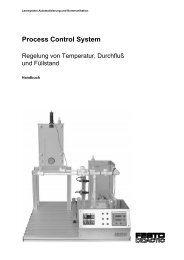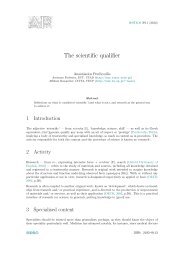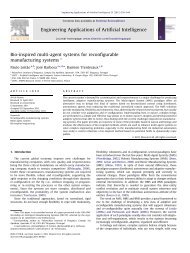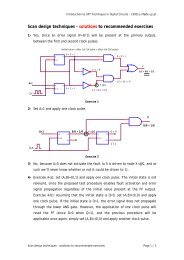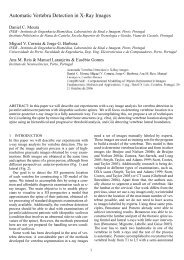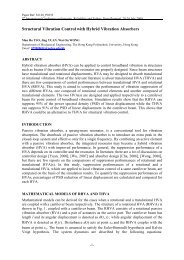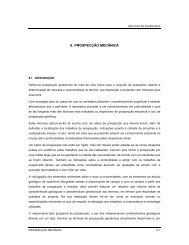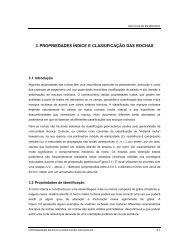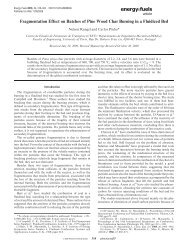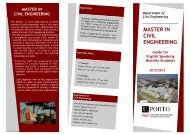Use-Case Controller
Use-Case Controller
Use-Case Controller
You also want an ePaper? Increase the reach of your titles
YUMPU automatically turns print PDFs into web optimized ePapers that Google loves.
<strong>Use</strong>-<strong>Case</strong> <strong>Controller</strong> 9<br />
In Figure 7. it is shown the UML class diagram representative of<br />
the pattern structure.<br />
Implementation<br />
?<br />
?<br />
The following guidelines are suggested to implement this pattern.<br />
Identify candidate use cases by looking in the use case model for<br />
those that may benefit from the solution proposed by this<br />
pattern. <strong>Use</strong> cases usually involve interface objects and entity<br />
objects. In a first approach, all use cases can be defined as<br />
candidates. However, use cases whose behaviour is completely<br />
placed in interface objects and entity objects do not need to be<br />
implemented with use-case controllers because no behaviour is<br />
left to the control object. The same happens when one decide<br />
that control objects are better encapsulated within interface<br />
objects. On the other hand, a control object can be so complex<br />
that it is better to encapsulate it in two or more use-case<br />
controllers. Examples of functionality typically placed in usecase<br />
controllers are transaction-related behaviour, sequencing<br />
behaviour specific to one or more use cases, or behaviour to<br />
couple together interface objects and entity objects [8].<br />
* In the example presented, Place Order can be considered a<br />
good use case candidate, as it involves specific<br />
functionality that do not assign well either to interface<br />
objects or entity objects. On the other hand, the use case<br />
Save Order for Later <strong>Use</strong> is not a good candidate because its<br />
behaviour is very simple and do not involve coordination of<br />
interface objects and entity objects.<br />
For each one of the use cases above create a use-case controller<br />
class. Although being possible, and sometimes convenient, to<br />
create a use-case controller class for each use case candidate,<br />
this decision must be made by the developer after refinement of<br />
the use-case participant classes and, thus, knowing well the<br />
events exchanged between them. At this stage, it can be decided<br />
to assign one, two or more use-case controllers to a single usecase,<br />
or even none. Typically, a use-case controller class<br />
includes methods to start and finish its execution, to invoke<br />
specific use-case actions, and to fire events to interface objects<br />
and entity objects.<br />
* The use-case Place Order can be conveniently implemented with<br />
one single use-case controller class.<br />
abstract public class <strong>Use</strong><strong>Case</strong><strong>Controller</strong> {<br />
abstract public void start();<br />
abstract public void finish();<br />
}<br />
Copyright © 2001 Ademar Aguiar, Alexandre Sousa and Alexandre Pinto.<br />
All rights reserved. Permission granted to copy for all purposes of EuroPLoP’2001.



